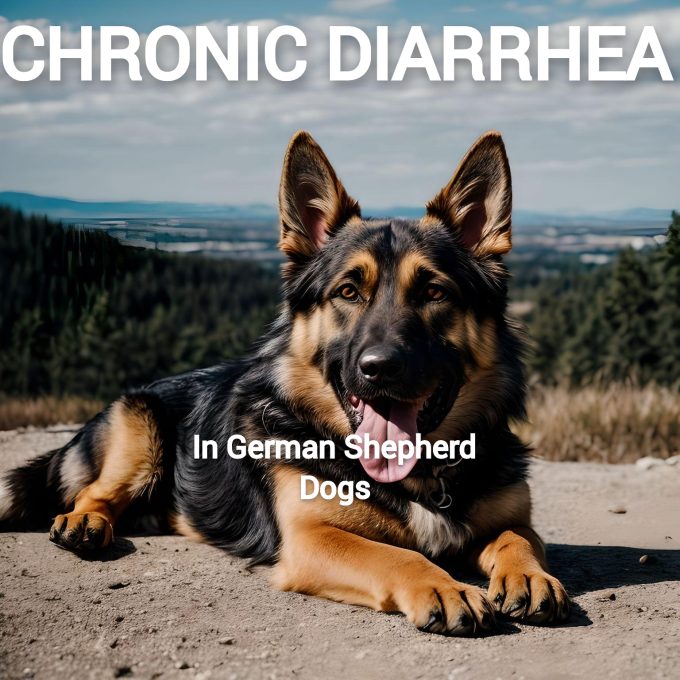Chronic Intermittent Diarrhea in German Shepherd Dogs?
Of course it could be worms, Giardia, Coccidia, even Inflammatory Bowel Disease or an adverse food reaction (They used to call it Food Allergy).
But, if you’ve done most of the basic testing for the above; and wanna stop short of a TLI (Trypsin-Like-Immunoglobulin Test) and a pinch biopsy of the bowel, consider some of the “other” reasons for chronic intermittent diarrhea or soft stools in the fairly typical German Shepherd Dog.
German Shepherd’s chronic diarrhea can come from:
- Indulgent treats (GSD are the worst for GI upset from ‘excess’)
- Overrich foods (Keep it simple and moderate-to-low calorie food)
- Access to cat food (Not your cat’s food, the cat next door on their porch)
- #COMMON# Hyperacidity Syndrome
- #COMMON# Bacterial Overgrowth Syndrome
- #COMMON# Digestive enzyme Inadequacy = Many GSD improve overall with the addition of some “Prozyme” or exogenous digestive enzymes added to their meals. Some would say the GSD is too demanding on what they eat – and need it unlocked. Others might say GSD are flimsy in their digestive process and need the help. No one cares as long as: Adding Prozyme fixes gastrointestinal disorders.
These (4 and 5) go “hand-in-hand” in that the GSD commonly produces excess stomach acid – lots of the time. This can cause stomach-upset but also:
The hyperacidity can overwhelm the small intestine and ‘burn it’ which then grows bacteria – in the intestinal wall – lining. This is “Bacterial Overgrowth Syndrome” consequent to Hyperacidity Syndrome.
It’s just like GERDS except the excess acid shoots into the small intestine, NOT the esophagus.
Things you can do about chronic intermittent diarrhea in the German Shepherd Dog:
- Discourage overeating.
- Add an antacid to the diet like Famotidine every day -OR-
- Omeprazole (not as much my favorite) -OR-
- my fave: TUMS TWICE A DAY. Binds excess stomach acid while supplying much-needed calcium!
- Prozyme mentioned above.
“Two Tums and a pinch ‘o’ Prozyme” and call me in the morning.





